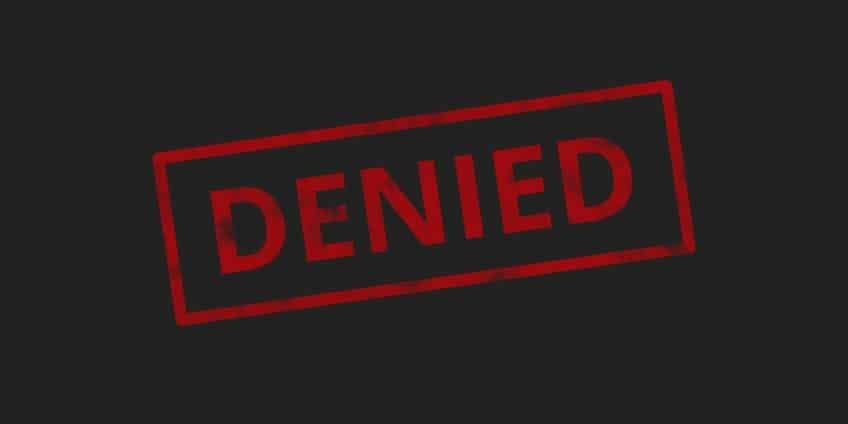Denied Recorded Statement From Insured Was Considered Bad Faith
Insurance Bad FaithIn the case of Suzanne Harvey v. GEICO General Insurance Company, Case Number SC17-85 (Fla. September 20, 2018) the Florida Supreme Court held that GEICO’s failure to comply with a request to take a statement of the insured was bad faith.
The Underlying Liability Case
In 2006, James Harvey (GEICO’s insured) was at-fault for causing a car accident that resulted in the death of John Potts. Mr. Harvey’s vehicle was registered to him personally as well as in the name of his business and carried policy limits of $100,000 per claimant.
The attorney for Mr. Potts’ estate requested that GEICO permit a recorded statement from their insured to determine:
- the extent of assets that he may have
- whether he had any additional insurance
- whether he was in the scope of employment at the time of the accident
The GEICO adjuster apparently denied this request and, three days later, tendered the full policy limits to the attorney along with a release and an affidavit of coverage (without immediately informing Harvey of the request to take his recorded statement). In response to the tender of policy limits, the attorney wrote a letter to the GEICO adjuster acknowledging the receipt of the check and the refusal to make the insured available for a statement.
Harvey first became aware of the request for a statement after the attorney’s response letter had been forwarded by the GEICO adjuster. After receiving the letter, Harvey told the GEICO adjuster that he planned to meet with his own attorney (as recommended by GEICO) to review his financial position and provide whatever information may be necessary.
Specifically, the adjuster’s system entry for this conversation included a statement that “Insured does not want claimant attorney to think that we are not acting fast enough and asked what we can do to let the claimant’s attorney know we are working on this.” Interestingly, the opinion says that the adjuster’s supervisor specifically instructed the adjuster to relay Harvey’s message to the attorney for the estate. Apparently, the adjuster did not relay this statement to the attorney.
Later on in the opinion, the Court informs us that Harvey had approximately $85,000 in his business account and that the Potts estate would have accepted the policy limits had they known this fact.
Approximately one month after the initial request for a recorded statement, the estate returned GEICO’s check and filed a wrongful death lawsuit. The jury found Harvey 100% responsible for the accident and awarded damages of $8.47 million.
The Bad Faith Case
After the verdict, Harvey filed a bad faith case against GEICO because the judgment was more than his policy limits of $100,000. Issues were made about the timing of the requests for the recorded statement and whether the GEICO adjuster had a “sense of urgency” knowing that a failure to settle the claim within limits would result in a judgment greater than the policy limits.
Evidence in the bad faith case also included records that the GEICO adjuster had a history of struggling to manage her files and communication failures.
The bad faith jury found GEICO to be in bad faith and awarded $9.2 million in damages.
Thereafter, GEICO appealed to the Fourth DCA claiming that there was “insufficient evidence at trial” to support a bad faith claim. The Fourth DCA held that “even if the insurer’s conduct were deficient, the insurer’s actions did not cause the excess judgment rendered against the insured.”
As we know, the Florida Supreme did not accept this reasoning and reversed.
The Insured Is Not To Blame For This One
First, the Court explains (quoting Berges v. Infinity Ins. Co., 896 So. 2d 655 (Fla. 2004)) that “bad faith law was designed to protect insureds who have paid their premiums…” From Boston Old Colony Ins. Co. v. Gutierrez, 386 So. 2d 783 (Fla. 1980) which is the case that began bad faith in Florida, the duty of an insurance company is “to use the same degree of care and diligence as a person of ordinary care and prudence should exercise in the management of his own business.”
The legal standard in a bad faith case is whether the insurance company acted in bad faith against an insured under a “totality of the circumstances” (See Boston Old Colony). Hence, this is where the “ticking financial time bomb” (as the Court put it) was important and whether the GEICO adjuster’s initial denial of a statement (as well as her delay in communication) was the cause of bomb’s explosion so to speak.
Why Does GEICO Do This?
This case, in large part, resulted from the initial conduct of the adjuster in denying the estate’s attorney access to the insured for a statement. If GEICO had informed their insured of the plaintiff’s request for a statement and the insured refused to give a statement, then GEICO may very well have avoided a bad faith claim.
Secondly, this case is also due to the delays in communication attributable to the GEICO adjuster when there was likely a deadline set by the plaintiff’s attorney. The fact that the supervisor instructed the adjuster to communicate the message from the insured to the plaintiff’s but the instruction was not followed was significant.
But those two things do not explain why the GEICO adjuster did not show the “urgency” that was expected by the court system. Speculation on my part is that the case of Novoa v. GEICO Indemnity Co., 542 F. App’x 794 (11th Cir. 2013), where it was said that “to fulfill the duty of good faith, an insurer does not have to act perfectly, prudently, or even reasonably…[but must] refrain from acting solely on the basis of their own interests in settlement” is to blame for the lack of urgency shown by the GEICO adjuster.
After Novoa, GEICO’s behavior as a company regarding settlements seems to have changed for the worse. It is very significant that the Florida Supreme Court describes the Novoa case as precedent that “does not always hit the mark.” Hopefully, the Harvey case will change that.
To Request Or Not To Request…A Recorded Statement Before You Settle For Policy Limits
This case is somewhat unique in that the vehicle was registered in the name of both the individual and the business owner. The real purpose of the recorded statement (that obviously never happened) should have been limited to whether the driver/owner was acting in the course and scope of employment for the business.
Discovery of assets reachable by a potential judgment would be clearly not discoverable until after a civil judgment has been entered (See Friedman v. Heart Inst. of Port St. Lucie, Inc, 863 So 2d 189, 194 (Fla 2003)), although there is nothing from stopping a plaintiff from asking for it before settling. However, the choice of an insured to disclose assets as a condition of settlement would not create a bad faith case.
Therefore, plaintiff’s attorneys should selectively decide which cases are appropriate for a recorded statement rather than attempting to seek one in every case before accepting policy limits.
The Value In Hiring An Attorney For Your Case
If you have a case where the insurance company has unreasonably denied your claim, you should contact a Lakeland, Florida insurance bad faith attorney to schedule a free consultation.


